Search
Showing 10 of 1007 results for gabrielaaa06302 of
-
Driving student interest in Indonesia through strategic co-funded initiatives
ENZ and SUN Education delivered a jam-packed programme of student recruitment events in Surabaya and Jakarta in late May to drive student interest and connect New Zealand providers with potential partners for academic collaboration.
Surabaya
The activity began with an introductory meeting between Universitas Airlangga’s International Office and visiting New Zealand providers to explore opportunities for academic collaboration between our two countries.
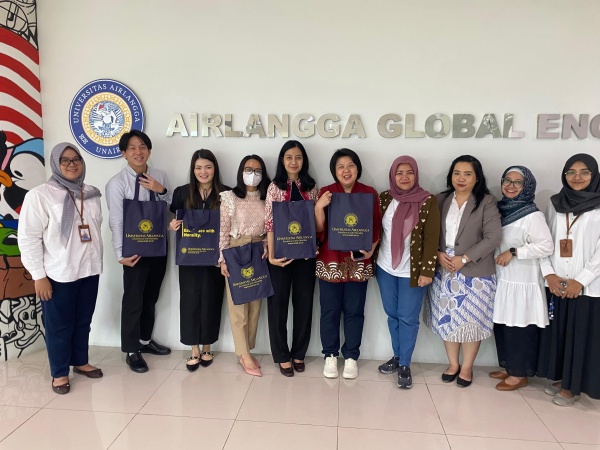
The meeting was attended by representatives from the University of Auckland, Auckland University of Technology, the New Zealand Honorary Consulate in Surabaya and SUN Education.
Discussions centred on potential areas of partnership, including articulation pathways, staff exchanges, guest lectures, and joint research initiatives.
The following day, providers met with prospective students at the Study in New Zealand Exhibition in Surabaya.
The exhibition featured the University of Auckland, Auckland University of Technology, University of Waikato, UP Education, University of Otago, Le Cordon Bleu, the Southern Institute of Technology and Lincoln University.
The event attracted around 200 students and their parents.
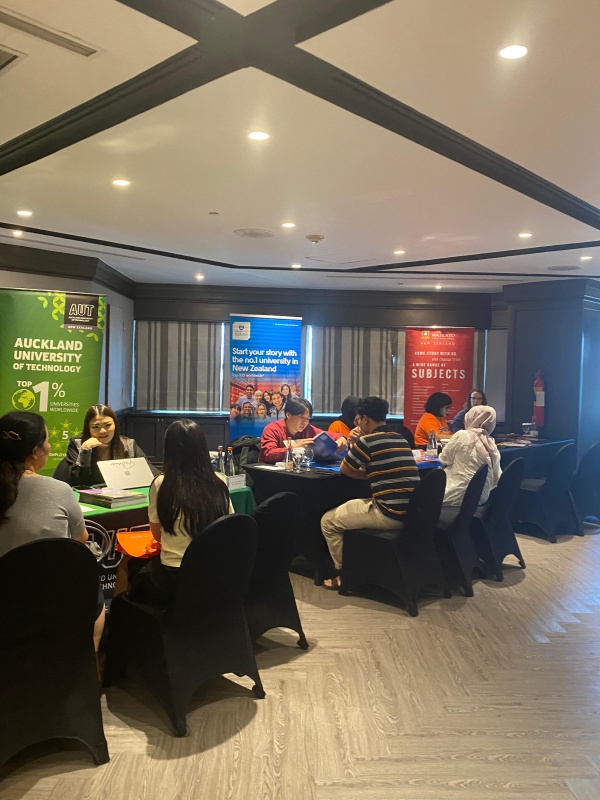
Study in New Zealand exhibition attendees learning about tertiary education options in New Zealand.
Jakarta
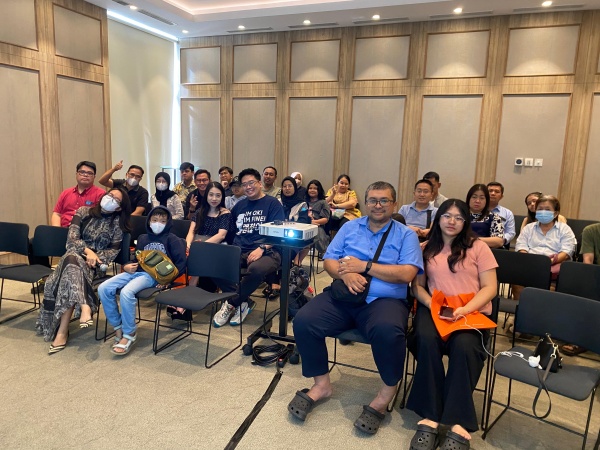
Over to Jakarta, ENZ organised an exhibition featuring a strong line-up of New Zealand institutions, comprised of all eight of New Zealand’s universities alongside the Southern Institute of Technology, Le Cordon Bleu, University of Canterbury International College and UP Education.
The fair attracted approximately 250 students and parents, all eager to explore the diverse study options and world-class education opportunities that New Zealand has to offer.
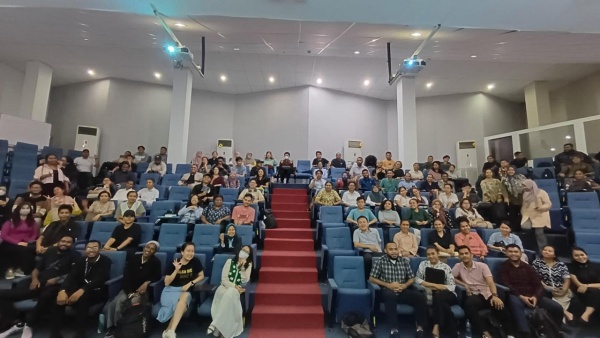
To close off a busy student recruitment period, a mini exhibition was hosted at Universitas Indonesia, the top-ranked university in Indonesia.
The exhibition was specifically for LPDP Affirmative Scholars and students interested in postgraduate-level study.
As part of the event, ENZ Market Manager, Naluri Bella, delivered a ‘Study in New Zealand’ session, which attracted around 100 enthusiastic attendees.
The session provided insights into New Zealand’s high-quality education system and scholarship opportunities, helping to raise awareness and inspire future postgraduate study pathways.
ENZ’s Regional Director (Asia) Ben Burrowes said the activities were designed enhance agents’ and students' awareness of New Zealand’s world-class education offering.
“These collaborations help position New Zealand as a competitive and credible choice for Indonesian students,” he added.
-
New Zealand’s EdTech at centre-stage of International Education
Export digital products and services have long been an important element of New Zealand’s international education sector, but they have largely flown under the public radar. Overnight, the needs of learners changed, and education providers found themselves in uncharted territory.
New Zealand companies with an established reputation delivering digital educational programmes quickly stepped up both the range and reach of their products. This, combined with Aotearoa’s reputation for creativity and innovation, and more than a little manaakitanga, has resulted in the phenomenal growth of some of our best-known EdTech brands over the past year.
Kami is helping Schools Globally
At digital online learning platform Kami, the goal is success for every student, regardless of ability, by providing inclusive and intuitive tools that support any learning style. They include text-to-speech, voice-typing, freehand drawing, and audio and video commenting.
Many of the schools which closed globally adopted Kami’s digital classroom technology. The company has grown from 8 million to 27 million users in 180 countries over the past year, adding one million new users in one week alone.
Code Avengers taps into the popularity of Gaming
Code Avengers takes a left-field approach to engaging learners by tapping into the popularity of gaming and uses those concepts to captivate students and build their digital capability. The platform was only founded in 2012 and is now being used in 15,000 schools in 14 countries.
“Our goal is to prepare teachers and students, from all backgrounds, for the current reality of the job market, and the jobs of tomorrow,” says Code Avengers CEO Hamish Day.
“We want to help give people confidence and an opportunity to learn the skills that industry tells us it needs.”Education Perfect are inspiring the next Generation of Changemakers
EdTech providers also have the power to engage students on social issues and challenge them to think critically. Key market player Education Perfect, which reaches more than one million students in 1800 schools globally, is finding new ways to inspire the next generation of changemakers.
It is building curriculum content to include issues such as social justice, sustainability, student health and wellbeing, and indigenous issues. It recently partnered with Australian animal rights organisation Voiceless to deliver modules focused on animal welfare, including the issues of dolphins living in captivity and the export of live animals.
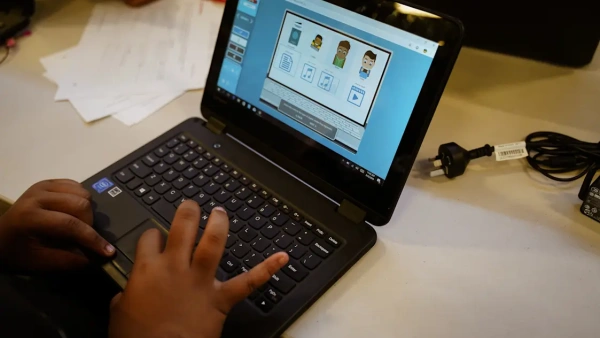
EP Partnerships Director Anna Redmile says that joining forces with Voiceless allows teachers and students to have conversations which promote critical thinking and better understanding of the world they live in.
Education consultant and Voiceless adviser Dr Christina Jarvis agrees. "As we help children embrace an increasingly complicated future, such skills are paramount for developing engaged citizens.”
EdTech will continue to play a key role in New Zealand’s International Education Offering
The EdTech sector was estimated to contribute $300 million to the New Zealand economy in 2017, and those figures will have ballooned with the impact of Covid.
Looking to the future, educational technology will play an increasingly key role in the diversification of New Zealand’s international education offerings. And there is no shortage of amazing and pioneering companies ready to play their part.
-
Pakistani student leverages language skills to connect communities
Fluent in Punjabi, Urdu, and English, and passionate about community service, Usma soon became a key player working to support and connect ethnic communities in Christchurch.
So extensive have her achievements been, that she has been honoured by the university with a coveted Blues Award for community engagement, and by the Christchurch City Council with a Civic Award.
Usma arrived in New Zealand in late 2016 and gave birth to her third child shortly after arriving. “It gave me the time I needed to assess society here, and I realised the value that was placed on volunteer work.”
New Zealand values transferable skills
“My background was in teaching and ESOL (English for Speakers of Other Languages) instruction. I did teach here when I first arrived, but it was not fulfilling enough,” she says. “I needed to think what other skills I had to offer in an area of work I was passionate about. New Zealand is not a destination of degrees, it is a destination of skills, where whatever transferable skills you have to offer, are valued.”
She initially got involved in UC’s Pakistani Student Association, planning events which quickly extended beyond the student community. “I got great feedback from the wider community and different ethnic groups started coming along. People from these communities were looking for connectivity and involvement and it ended up being a multi-cultural hub.”
She admits it was not without challenges, but she was determined. “I was an international student, a woman, a mother of a special needs child, and I was working. But I managed my time. I enjoy doing volunteer work and it comes naturally.”
In her second year at Uni, she secured a role as a Diversity and Engagement Officer with the Ministry of Ethnic Communities and juggled both study and work. It was in this role that she became involved in the Government response following the Christchurch mosque attack in 2019.
Frontline worker following mosque attack
“I was one of the frontline workers dealing with victims and those left behind. Some of my colleagues were victims,” she says. “It was a difficult time. I had never had any exposure to such an event, or what the aftermath might be like. Hearing the stories, and being part of it, are totally different things.”
“I’m very proud of my work and found it very rewarding. I discovered my strengths and weaknesses and learned how much I had to offer. I could speak with many of the widows in the Muslim community in their own language, understand their needs, and advocate on their behalf. I learned how to deliver the key messages to the government agencies involved in the response and formed a link between the two groups.”
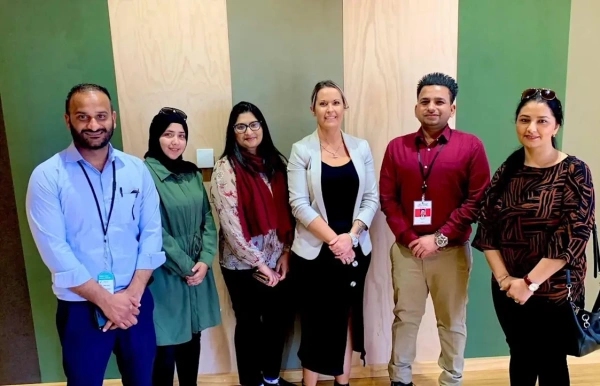
“The migrant communities have so much resilience and I believe that every disaster brings opportunity to come together, to heal, and to grow.”
Usma went on to become involved in Widows of Shuhada – an eight-part Plains FM/RNZ podcast documentary series which followed the journey of four widows following the attack.
Soon after, Covid-19 arrived in New Zealand and Usma worked on engagement with local ethnic communities, translating the Government’s messages and communicating them through a range of digital channels.
Tapping into the skills of international students
But she didn’t stop there. Usma was also influential in Christchurch’s Ethnic Communities Skills Build Programme, a project designed to smooth the pathway of migrants and international students into employment in New Zealand.
International students could join in workshops, meet career counsellors and job brokers from the Ministry of Social Development, reshape their CVs, and attend job fairs.
“I believe we need to tap into the high-level skills of post-graduate international students. We need to progress them in the right direction, utilising their skills in science, technology, and innovation.”
As for her own career, Usma could not be happier. She has secured a full-time role as a policy analyst at the Ministry of Primary Industries in Wellington and has taken a step back from her volunteer work to focus on completing her PhD this year.
She is grateful for the opportunity to study in New Zealand and to bring her family with her. Her husband is working, her children are happy, and her special needs daughter has opportunities she wouldn’t have had in Pakistan.
Usma still acts as a mentor for international students and tells them if they are to make the most of their time in New Zealand, they should “think outside the box”.
“They should think about the skills they have to offer in the community, and they will be rewarded with a transformative experience. Leaving behind the social constraints of your home country can be liberating. It’s all about following your dream.”
Usma says she’s already landed her dream job, but she plans to continue her community work once she has completed her PhD.“I believe it is my contribution to this country and I love doing it. I’m not likely to stop. I’m just settling in, finishing my PhD, and getting ready for something big. I have ambitious plans.”
-
Patrick Au: a champion for international students in New Zealand
Disclaimer: This story was originally published on New Look, which was also operated by Education New Zealand Manapou ki te Ao. It has been republished here to ensure wider access and visibility.
He has spent more than two decades working with international students and Asian migrants in primary and tertiary healthcare settings, understanding their mental health needs and advocating on their behalf.
Patrick is a registered psychiatric nurse and counsellor who migrated from Hong Kong in 1991, completed his Master’s in Education in 1999, and has worked tirelessly to support Asian communities in New Zealand. He is now stepping down from his role as Asian Mental Health Coordinator for the Auckland District Health Board to commit more time to private practice.
It was Patrick’s emerging reputation for specialty expertise which led to the International Education Association ISANA asking him in 2010 to prepare a presentation to international education providers about the mental health needs of international students. This was quickly followed by a contract with the Ministry of Education to present a series of workshops nationally.
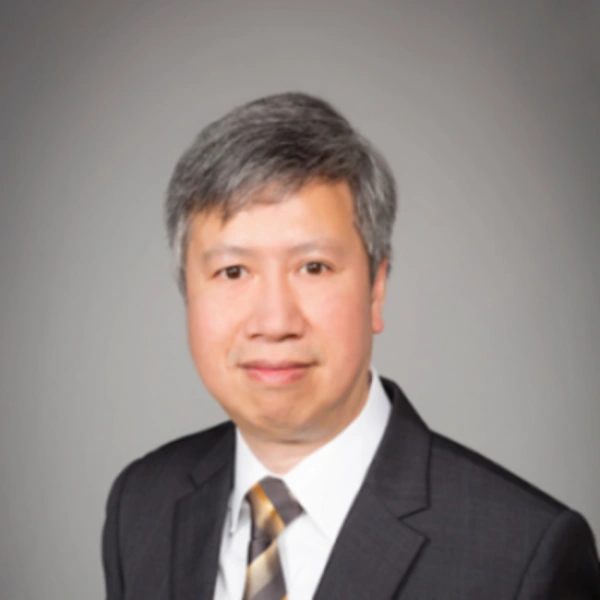
“I was overwhelmed by people calling me and asking me for advice,” Patrick says. “This is where I seriously started my work with international students.”
In more recent years, Patrick has been a key player in the Auckland Agencies Group, which brings together multiple organisations with the common goal of enhancing student wellbeing.
The issues which international students can face vary, depending on their age and stage of education. For younger school students it can be homesickness and lack of parental guidance. Older students also face settlement issues but can have the added pressure to succeed.
“People come here to study and so they need to be successful,” he says. “From an Asian perspective, we are a collectivist society. Your success is not just for yourself, the grades and glory are for your family too. If you are successful at your study you are acknowledged as a successful person, but what if you’re not able to finish your study? The pressure is on you.”
Prevention and awareness key to mental wellbeing
Patrick is a great believer in the importance of awareness and prevention when it comes to mental wellbeing and says New Zealand has made good progress with the availability of resources which students can access on campus, through workshops, and online. Support services are widely established, and the International Students Wellbeing Strategy ensures government agencies work together to support international students to feel safe, well, and welcome in New Zealand.
“Most Asian cultures believe the body and mind are not separated. So we need to address the root cause of problems in behaviourial terms - how to adapt to the new environment, how to get better sleep, how to cope with exam pressure, how to eat well, rather than talking about mental health. When they hear these two words they will withdraw from you,” he says.
“There is very limited mental health education in the students’ home countries, but with all the online resources available here students are researching the issues. There is much wider awareness, and sometimes it is friends who recognise issues and offer peer support in seeking help.”
Patrick knows that some students come up against cultural intolerance and misunderstanding but says that New Zealanders have come a long way since the early days of the international education sector in understanding the challenges which international students can face, but also the contribution they make to society here.
International students talented and motivated to contribute
“International students bring cultural diversity and increase cultural awareness among New Zealanders,” Patrick says. “The students who come here are quite talented and motivated to contribute. Once they have completed their education, they can contribute in many ways."
“International students bring cultural diversity and increase cultural awareness among New Zealanders” – Patrick Au, mental health expert and international student advocate
International students can be the bridge between their home country and New Zealand. If you want to do business in these countries, international students can play an important role as they often act as informal ambassadors for New Zealand and can open doors to business.
New Zealanders are also contributing to their success by creating a nurturing environment for them to complete their studies. Over the years we have seen lots of successful international students who have started working and contributing to the New Zealand economy after completing their education.
“If they have a positive experience, they are also instrumental in encouraging other students from their home country to come to New Zealand. I think it is a win-win situation.”
-
Prime Minister's Scholarship shakes up geology student's plans
Soltice Morrison was only 15 when that earthquake happened, but she is part of a new generation of students and researchers wanting to equip themselves with the latest knowledge and technology to better understand New Zealand’s vulnerability to quakes. The best way to achieve this is through international collaboration with other countries which face the same risks.
Having already completed a BSc in Geology and Oceanography from Otago University, Rotorua-born Soltice secured a Prime Minister’s Scholarship for Asia during her Honours year in 2018, which allowed her to enrol in a post-graduate short course in geology at Hokkaido University in Japan and stay on to complete most of her Honours research.
Prime Minister’s Scholarship allowed joint research
Under the guidance of her supervisor, Dr Virginia Toy, she was involved in a project which studied the characteristics and behaviours of New Zealand’s Alpine Fault and Japan’s Median Tectonic Line to better understand what causes earthquakes in both countries.
"We’re both very seismically active countries but Japan is much more advanced in its use of technology. We were able to bring some of that knowledge back to New Zealand."
Soltice says that without the funding she received through the Prime Minister’s Scholarship (PMS), she would not have been able to study abroad.
The scholarship programme to Asia was established in 2013 and extended to Latin America in 2016. To date, 2400 students have been given financial support to study abroad. While currently on hold due to Covid travel restrictions, the programme is poised to restart once borders reopen.
Importance of New Zealanders studying abroad
Funded by the government and administered by Education New Zealand, the programme recognizes the importance of giving New Zealanders the opportunity to have an international education experience in countries where we have key trade and business relationships.
There are few restrictions on study options, with the programme having broad goals to enhance understanding of other cultures and business practices; establish new friendships and networks; and upskill the New Zealand workforce through overseas experience.
“It’s very important to connect with students and colleagues internationally in order to get ahead,” says Soltice. “We can get caught up thinking that the New Zealand way is the only way. Studying overseas helps you broaden your horizons, your knowledge, your understanding of different cultures, and the way things can be done.”
In geophysics, Soltice says international collaboration is essential.
“We’re able to learn a lot from Japan and the advances they have made in technology and monitoring.”
The time Soltice spent in Japan ended up taking her career in a new direction. “While I was there, I was able to understand the effects of seismic activity on buildings and how we can strengthen our cities to ensure they’re resilient, so I’ve ended up in the engineering space working for Aurecon.”
But her work also has an environmental focus and she is currently part of the multi-disciplinary team working on the Lakes 380 project, which seeks to combine best scientific thinking with mātauranga Māori (traditional wisdom and knowledge) to better understand the social, cultural, and environmental history of Aotearoa’s lakes. “It’s rewarding work and I love it.”
Reawakening of cultural identity
Soltice says her time in Japan prompted a reawakening of her own cultural identity. “I had always tried to blend in at home, but the questions I was asked about my background while I was away made me realise I was proud of my Māori ethnicity and also taught me the value of indigenous knowledge.”
Building on this confidence, she has set up a Māori strategy group with colleagues at Aurecon “looking at ways we can weave cultural understanding with scientific knowledge into the work we do.”
Soltice says she made life-long friends during her time in Japan and built a valuable network of contacts. “I work closely with the geophysicists here at Aurecon and sometimes when we have questions, I will reach out to my contacts offshore.”
Three years on, she remains a passionate advocate for Prime Minister’s Scholarship programme. “The overall experience – the research, the culture, the living situation, I would 100 percent say it was one of the best times of my life.”
Students value flexibility, networks, and personal growth
The positivity of Soltice’s experience was echoed by other scholarship recipients in a recent survey conducted by Education New Zealand. Close to 300 students participated, with 98 percent saying they would recommend PMS to others. Benefits they identified included the unique flexibility of the programme, the networks they built, the opportunity for personal and professional growth, and the chance to better understand New Zealand’s place in the world.
As for life after the programme, 57 percent said they would become involved in global causes, 50 percent would become involved in political or policy issues, and 44 percent would become involved in their local community or iwi.
-
Signing up to a bright future for the Deaf community
A serious encounter with Ménière’s disease partway through his PhD studies was a life-changing event in more ways than one for Arash Tayebi.
The inner ear disorder resulted in him losing the hearing in one ear and facing up to the possibility he could become deaf in the future. Studying at Auckland University, and feeling far from his home in Iran, he says the experience hit him hard.
But Arash turned one of the biggest challenges in his life into an opportunity. He became the driving force behind Kara Technologies, an award-winning start-up using digital sign language avatars to make communications of all kinds accessible to those with hearing issues.
His own situation made him question the noticeable lack of deaf people studying at universities, becoming entrepreneurs, and holding leadership positions in the workplace. “I asked myself if I become completely deaf will I not be able to succeed in study and work?”
Engaging with the Deaf community he learned of the real shortage of teachers of sign language, and the complexities in resolving that. Bringing in teachers from overseas is not the answer because they do not know New Zealand Sign Language (NZSL). Closed captioning, which can automatically caption speech is of limited use as young children cannot read, and existing avatars are not expressive enough for Deaf people.
“I said let’s work together to come up with a solution.”
Turning a vision into reality
What started as a small project with Kelston Deaf Education Centre, now part of Ko Taku Reo Deaf Education New Zealand, ultimately morphed into Kara Technologies. But it took vision, determination, and “mind-blowing” support from people he met along the start-up journey.
"The cool thing about New Zealand is that if you have a vision nobody will call you crazy, they’re here to help and happy to take a risk. That’s fantastic."
“There was so much I needed to learn about running a business. I wasn’t rich, so I needed funding. And as the concept was new, I needed the support of the Deaf community.”
Arash’s first break came when Kara Technologies was named Social Enterprise winner in Auckland University’s start-up business competition Velocity $100K Challenge in 2017, giving him access to seed funding and a mentorship programme. Then there was UniServices, which helps to commercialise promising student ventures through investment, advice, and connections. And in the wider community there was GridAKL, an innovation support community with a downtown campus. “If I had a problem, I could always find someone there who was happy to offer advice,” he says.
Estimates of NZSL users vary significantly, from about 4000 for whom it is a first language to more than 20,000 who have some knowledge of it. Arash and his team are committed to their vision of improving meaningful access to information for the Deaf community, and they are already making an impact.
Kara Technologies has produced a diverse suite of avatars, signed children’s books and a range of videos. It has been recognised many times for its innovative work, most recently being named a 2022 finalist in the Public Good category at the NZ Hi-Tech Awards.
Looking to the future
The team at Kara sees a future where TV shows, bank machines, travel websites, online registration forms, live theatre, social media, gaming, and virtual reality technologies are all equipped with sign language avatars. “We want the daily life of a Deaf person to be as easy as a hearing person,” Arash says.
The company is currently trialling emergency messaging by using a set of pre-recorded motion-captured animations, making it possible to relay time-critical information quickly.
Kara is already attracting interest in the US and Canada, where Deaf advocates are excited by the technology. “They are impressed that a small country can make such a contribution. It makes me proud because I call New Zealand home.”
Arash says it’s hard to believe the decision he made to come to New Zealand to study in 2013 has led to where he is now. “I thought I would probably complete my PhD and end up in an academic teaching role. But I have a company, a team, a vision, and fantastic friends. It’s all happened because of the great support I’ve received here.”
He only wishes it was easier for innovators like him to stay on when they finished their studies. He would love New Zealand to introduce a Talent visa like Australia and Canada have. “If you have a cool project they will welcome you, but in New Zealand, you need to secure a job. I already have a job, but it is in my own company,” he says.
“When New Zealand encourages international students to come here it needs to be able to harness their talent, nurture them, and benefit from their talent.”
But Arash says he would always encourage students to come here. “Take yourself out of your comfort zone and you will meet amazing people. New Zealand is a crazy, creative country which could easily be your second home.”
-
Aminat chases sustainable energy dream for Nigeria
The former maths teacher and electrical engineering undergraduate has recently returned home to Nigeria after studying renewable energy at the University of Otago’s Energy Research Centre. She completed both a post-graduate Diploma and a Master’s of Science in Energy, Science, and Technology.
“It has always been my dream to study abroad, and New Zealand made my dream come true because I wanted to study renewable energy,” she says.
Manaaki scholarship key to education opportunity
“New Zealand is one of the top five countries in the world which excel at renewable electricity generation, and it is important to study in a country where you can get practical experience.”
Aminat says that the cost of international education overseas is beyond the reach of most people in developing countries, but that her experience was made possible through the Manaaki New Zealand Scholarships, funded by the New Zealand government. When she applied in 2018, she was one of only a small number of students accepted from Africa “so it was a big deal for me”.
And so was getting here. “It was my first experience travelling overseas, my first time on a plane, my first time in a new country.”
But she says she was grateful for the orientation programmes available and quickly felt at home both at university, and in Dunedin. “Just two months after I arrived, the Christchurch mosque shooting happened, and the support I got from my neighbours, my colleagues, and my lecturers was amazing.”
Energy poverty drives study choice
Aminat says she is motivated to study renewable energy because of where she comes from.
“I wanted to study something would allow me to improve my own country. Every economy depends on a reliable power supply and in Nigeria we have nationwide blackouts regularly. We need to buy petrol to run generators. Most people have generators in their homes, even in the cities.
“If you don’t have adequate reliable power, it holds back every aspect of the economy and makes it very difficult for businesses to succeed. It affects everything - manufacturing, schooling, farming. You can’t even freeze excess seasonal crops, so most of it goes to waste.”
A European Union report released last year titled “Time to make energy poverty in Africa a thing of the past”, backs up what Aminat says. It found that nearly 800 million people globally live without access to electricity, about 600 million of them in sub-Saharan Africa.
“In a world of deepening inequalities between the haves and have-nots, this is a glaring injustice, the report says. “Africa is the world’s premium location to harness solar energy and is already demonstrating that a cleaner path is possible.”
“Renewable energy is a passion for me,” Aminat says. “We need to talk about renewable energy for the future in Africa. And the future is now.”
By coming to New Zealand, Aminat says she saw the potential of what can be achieved with a reliable power supply.
Her research, supervised by Associate Professor Michael Jack, explored how to use domestic hot water cylinders for energy storage in microgrids comprised of clusters of households with solar photovoltaic supply. “It’s definitely achievable but needs more research and I’m very keen to take it further.”
International education more than classroom learning
Aminat says studying in New Zealand was “the best-ever experience”, with excellent university facilities and approachable staff always ready to offer help and support.
“Studying in New Zealand has given me a voice. It has expanded my horizons, made me more informed, and opened doors for me. People are keen to listen to you when you talk. When you’re looking for a job, an international education experience makes you stand out.”
“Studying in New Zealand has given me a voice" - New Zealand international student and Manaaki scholar Aminat Razaq
While the quality of education is essential, Aminat says it’s also about what you learn beyond the walls of a classroom. “You learn a different culture, and you are given the opportunity to explore your chosen field of study and gain another perspective. By offering scholarships, you are also helping the country the students come from.”
For any students considering New Zealand as a study destination, Aminat says “don’t think twice”.
“New Zealand is probably the most peaceful place in the world, it has all the facilities you need to study, the researchers are top notch, and the people are welcoming.”
While studying in New Zealand has fulfilled one of Aminat’s dreams, she is already working on another one. “My new dream is to set up my own energy consultancy company and I’m sure I will achieve it. All the positive experiences I have had in my education will take me there.”
And she hasn’t ruled out a return trip to New Zealand. “I am considering studying for my PhD. I loved everything about studying in New Zealand and would love to come back.”
-
Southern Institute of Technology cultural education exchange introduces Aotearoa to Kansas
When Covid hit, the Southern Institute of Technology (SIT) knew that it was well placed to engage with its students digitally, as it already had a well-established distance learning faculty. The next move was to look at how that capability could be used for international education.
Using distance learning for cultural education internationally
Beyond widening its offering of fees-based online courses, SIT understood the value of establishing cultural exchanges which would engage current learners and potentially generate interest from future learners, says Study Abroad and Partnership Officer Whitney Irwin. She worked in collaboration with the School of Business faculty to set up the cultural exchange between SIT students and those at Johnson County Community College (JCCC) in Kansas, USA. “Being able to create buy-in and have a motivated faculty to get partnership projects across the line is the key to success. SIT has a wonderful culture, and we have all worked together to reorientate our international strategy for the greater good of SIT and our wider community.”
Experiencing New Zealand Life from afar
Twenty-five JCCC Economics students asked to be involved out of a class of sixty, reflecting a desire to learn about far-flung New Zealand, meet global peers and to try something new. From SIT, 23 Management students and 28 Communications students took part, with both groups of students using the interactions to produce assessed work.
“Our aim was to allow US students to see New Zealand life and get a taste of who we are, what we do, and how do we do it, with the bonus that it could also lead to the opening of doors for students to visit New Zealand, and vice versa,” says tutor Selena Coburn.
Using Zoom, Snapchat, and Instagram, students interviewed each other to learn about our different cultures, looking at differences in communication, lifestyle, politics, and making economic comparisons. Minimum wage, average house prices, and everyday living costs were compared, what the US and NZ dollar bought, and who was actually better off overall.
They learned about New Zealand’s response to the Covid-19 pandemic, rural life, Māori culture, the filming of the Lord of the Rings film trilogy, our outdoors lifestyle, and our connections with Australia. They also explored more personal subjects - relationships, music preferences, religious beliefs, parental expectations, and what they did in their spare time.
“The Kansas students now have a real sense of the kind of people we are,” Ms Coburn says.
Creating opportunities with a cultural education exchange
Digital collaboration also presents an opportunity for students, both in New Zealand and offshore, who could never afford to travel or would be uncomfortable leaving their home country, to still experience the cultural exchange which international education offers,” Ms Irwin says.
“It builds confidence and familiarity with a destination such as New Zealand which may encourage the students to travel here for study later on.”
And this has proved to be the case, with six Kansas students already saying they are keen to come to New Zealand.
“All going well, the intention is to host JCCC students here at SIT in 2023.” Ms Irwin says she expects the changes in the ways education is being delivered will continue well into the post-Covid environment.
“Virtual exchanges are a fantastic collaboration of ideas, which can lead on to the development of other educational products and services.”
-
Student-led business sets out to break down barriers
InterStudentsNZ, a platform which will host resources and courses to meet the needs of international students, is a regional winner in the Company of the Year category in the Lion Foundation Young Enterprise Scheme. It also scooped the Excellence in Promotion Award and Paying it Forward Award.
InterStudentsNZ is the brainchild of budding entrepreneurs Mackenzie Roskruge (CEO), KimSreng Keo (Production Manager), and Russle La Morena (Finance Director), who met through the college’s international student buddy scheme. They bonded over a shared interest in education and curiosity about their cultural differences.
Mackenzie and Russle are both domestic students, but Kim arrived in New Zealand in 2018 as an international student from Phnom Penh, Cambodia, knowing no-one and understanding little of what seemed to be a strange, new culture.
He believes that international students enrich New Zealand communities and have much to offer, but that many don’t make the most of their time here because they face challenges integrating into the community and planning a future beyond school.
“Understanding how people think and how to communicate is important,” he says. “When we first arrive many of us have a big language barrier. There are even subtle cultural differences which we don’t understand, and which need explanation.”
Platform driven by students, for students
Sharing his insights of the challenges that international students can face, the friends determined that more support was needed and that a platform driven by students, for students, was the answer.
The opportunity to enter the Young Enterprise Scheme through their Year 13 Business Studies course, gave the students a chance to turn their ideas into reality.
InterStudentsNZ has big plans. The team want to create a one-stop shop for resources tailored for students to better understand New Zealand’s education system, work environment, and culture.
“For example, if a student came to us and wanted to learn about New Zealand slang, we could direct them to a one-hour course with video tutorials, quizzes and written explanations to help them master slang,” says Mackenzie.
“Or a student might want to learn about social innovation in New Zealand. We could potentially provide a one-two hour course each week for a month with case studies, opportunities for mentorship, and tools for how they could move into social innovation themselves.
Empowering international students in New Zealand
"We hope students will feel empowered to learn new subjects and inspired to remain studying and working in New Zealand."And it’s not only international students who stand to benefit. Surveys of domestic students at Waitakere College showed that they were also interested to explore topics which would likely make them more engaged and invested in their education.
The InterStudentsNZ team all plan to study at the University of Auckland next year and hope to continue developing their business. With more funding, they would like to add workplace mentorship opportunities for international students, courses in te ao Maori, New Zealand history, and New Zealand industry pathways. They also plan a blog space and a social media presence. “We’re creating a digital Aotearoa for rangatahi all around the world to explore.”
Giving international students a sense of belonging
Kim is proud of how much he has achieved since arriving in Auckland as a shy 14-year-old, and grateful for the support he has received from his New Zealand friends. “Working alongside them has been amazing and allowed me to gain so much more confidence. Now we’ve come up with this idea on how to help international students, it’s really strengthened our relationship as a team. “Our business motto is ‘Encouraging Connections’ and that sums up our goals,” says Mackenzie. “It’s about building bridges and supporting international students, giving them a sense of belonging and a great future in New Zealand.”
-
The global citizens helping connect New Zealand with the world
The future looks like arts and crafts. In a room at the TSB Arena in Wellington in August, the Festival for the Future expo floor is packed with things to paint and fold and stick and make. At a stall for the Sustainable Development Goals I pick up a wooden bead representing the 11th goal – sustainable cities and communities – and paint it carefully orange, ready to be strung into a bright pattern with everyone else’s. As a shameless eavesdropper, this is my natural habit. I listen to two people discuss 3D printing, while another group sip ethical soda on colourful beanbags and chat about responsible investment.
At the Education New Zealand Manapou ki te Ao (ENZ) stall people line up for coffee while filling out forms about their experience of “global citizenship”. ENZ is the crown entity responsible for international education in Aotearoa. In 2019, pre-Covid-19, there were over 100,000 international students in New Zealand, studying mostly at tertiary institutions, but also at primary and secondary schools. Since 2013, more than 2,400 New Zealanders have been awarded Prime Minister’s Scholarships to study in Asia or Latin America.
"Global citizenship is an essential part of New Zealand’s international education strategy, and these inbound and outbound students represent an opportunity to create global connections, research links and broad partnerships for New Zealand."
ENZ partnered with the Festival for the Future to discuss what international education and global citizenship looks like in the unique confines of 2021. For Carla Rey Vasquez, ENZ’s global citizenship manager, the strategy’s value in an era of limited travel is the gift of a dual perspective to complex problems. It is also an opportunity to help New Zealanders understand the nuanced and mutual benefits of international education and the long-term relationships it creates with people around the world.
“Our world is characterized by complex issues. Global citizenship offers an opportunity to find ways to navigate and respond to those issues through shared understanding,” she says. “It’s about realising the value and power of your identity and knowledge, but also acknowledging the potential of others’ experience and perspectives on the world.”
This is a worldview that Rey Vasquez says is built on a relationship of local belonging and responsibility to our people as well as people across the world. International education is an essential way New Zealand builds that bond with the rest of the world, bringing diverse people, organisations and countries together.
Vasquez, a former international student herself, knows how transformational international education can be for both the student and New Zealand.
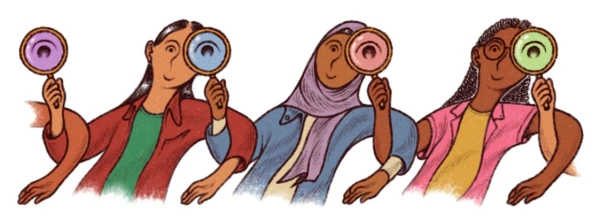
“It brings the world to our home, if we can harness the cultural value that international students bring to New Zealand we will all grow as global learners,” she says.
ENZ sees global citizenship as a way to bring shared understanding and learning between countries and cultures. Marc Doesburg, senior innovation advisor at ENZ, believes it offers new perspectives on the world, and a chance to question one’s own understanding.
“We give young people an opportunity to critique [their cultures] by going overseas, to see that things are done differently here.”
International students are a significant source of income for education institutions and the New Zealand economy, contributing more than $5b in 2019. But for both ENZ and international students the benefits students bring New Zealand are far broader than a GDP injection.
“I don’t want us just to be seen as bringing money – we bring culture, we bring international values…we want to know local people,” says Claire Lu, a Taiwanese student studying politics and international relations at Victoria University of Wellington.
That works both ways – studying abroad was an “invaluable” experience for New Zealander Anna de Boer, who studied Mandarin in Shanghai as part of a Prime Minister’s Scholarship and has been back to China several times since. De Boer now works with international students at Victoria University of Wellington. She wants to reframe the narrative that international students “come here, take something, then go back to their home country.”
There’s a huge benefit in how international students can take a piece of New Zealand home with them, and leave an important part of their own story behind in Aotearoa too, says De Boer. This builds long term relationships that have value far beyond the years they spend studying.
This was originally published on The Spinoff as part of a content partnership between Education New Zealand and The Spinoff.

